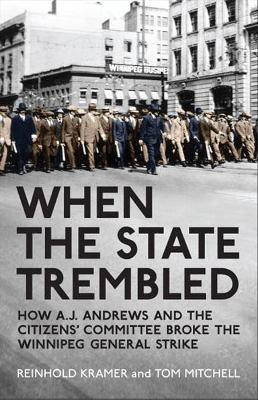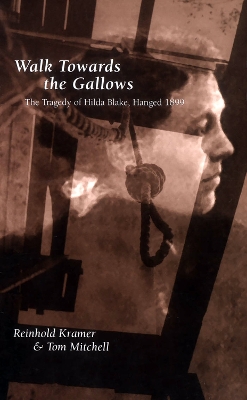Canadian Social History
2 total works
The Winnipeg General Strike of 1919, which involved approximately 30,000 workers, is Canada's best-known strike. When the State Trembled recovers the hitherto untold story of the Citizens' Committee of 1000, formed by Winnipeg's business elite in order to crush the revolt and sustain the status quo. This account, by the authors of the award-winning Walk Towards the Gallows, reveals that the Citizens drew upon and extended a wide repertoire of anti-labour tactics to undermine working-class unity, battle for the hearts and minds of the middle class, and stigmatize the general strike as a criminal action. Newly discovered correspondence between leading Citizen lawyer A.J. Andrews and Acting Minister of Justice Arthur Meighen illuminates the strategizing and cooperation that took place between the state and the Citizens. While the strike's break was a crushing defeat for the labour movement, the later prosecution of its leaders on charges of sedition reveals abiding fears of radicalism and continuing struggles between capital and labour on the terrain of politics and law.
On 5 July 1899 Hilda Blake, a 21-year-old maidservant in Brandon, Manitoba, who had come to Canada from England ten years earlier as an orphan immigrant, shot and killed her mistress. Two days after Christmas she was hanged, one of the few women in Canadian history to die for her crime. Blake unintentionally left a remarkable documentary record, ranging from Poorhouse records, courts dockets of custody and criminal cases in which she was the central figure, popular, journalistic, and professional assessments of her character, and a poem, 'My Downfall', that she penned in Brandon Gaol while awaiting execution. To explain why Hilda bought a gun and why she fired it, Kramer and Mitchell employee both historical and literary techniques. The result is a richly textured story of late Victorian social, cultural, and political life. This remarkable book - part mystery, part historical detective story - uncovers Hilda Blake's life, from her origins in Norfolk, England, to her tragic death.
It also examines the lives of other principals in the story: successful Brandon businessman Robert Lane and his wife Mary, the murdered woman; Lane's business partner, Alexander McIlvride; Police Chief James Kircaldy; A.P. Stewart and his wife, Letitia Singer Stewart, the family for whom the 12-year-old orphaned Hilda first worked as a domestic servant; Rev. C.C. McLaurin, the Baptist minister who knew Hilda and counselled the condemned woman in her final days; social purity activist Dr Amelia Yeomans, who petitioned for clemency; Governor-General Minto, who urged the Laurier government to stay the execution, even Clifford Sifton, the MP from Brandon, federal minister of Immigration, and the most powerful western Liberal in the Laurier cabinet, for whom the case was a potential minefield. As the authors write, 'We tell a story because only a story can expose the real workings of a culture, and only a story can express our protest against time.'
It also examines the lives of other principals in the story: successful Brandon businessman Robert Lane and his wife Mary, the murdered woman; Lane's business partner, Alexander McIlvride; Police Chief James Kircaldy; A.P. Stewart and his wife, Letitia Singer Stewart, the family for whom the 12-year-old orphaned Hilda first worked as a domestic servant; Rev. C.C. McLaurin, the Baptist minister who knew Hilda and counselled the condemned woman in her final days; social purity activist Dr Amelia Yeomans, who petitioned for clemency; Governor-General Minto, who urged the Laurier government to stay the execution, even Clifford Sifton, the MP from Brandon, federal minister of Immigration, and the most powerful western Liberal in the Laurier cabinet, for whom the case was a potential minefield. As the authors write, 'We tell a story because only a story can expose the real workings of a culture, and only a story can express our protest against time.'

